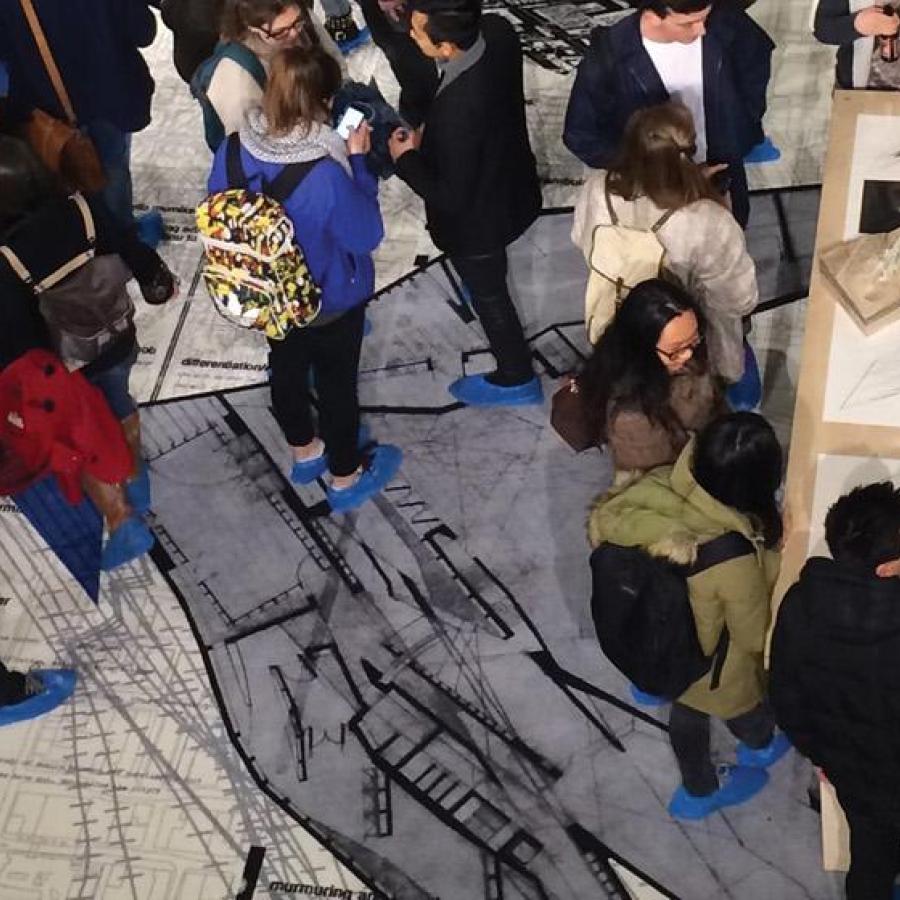Dr Moa Carlsson

Job title:
Lecturer in Architectural Design
Office:
Minto House, Maltings room 4.06
Research Output:
Edinburgh Research Explorer linkBiography
Dr Moa Carlsson (she/her) is an architectural historian and architect, with a PhD in Architecture from the MIT School of Architecture and Planning (Feb. 2019). An Associate Fellow of the Royal Historical Society, she has also trained in history of science at the University of Cambridge Department of History and Philosophy of Science (2016/17).
Her research and teaching focus on environmental histories of cities and urban histories of landscape. With a specific focus on Great Britain after 1918, her work addresses not the history of cities or rural areas but the history of the relationship between them. She has just completed her first book, a monograph titled Scenic Calculations: Landscape, Industry and Planning in Twentieth-Century Britain. (The book manuscript is currently under review at a notable university press.)
Carlsson's most recent major publications are: ‘The UK Landscape Evaluation Movement, 1965-1980’ (Rural History, 2022) and ‘Computing Views, Remodeling Environments’ (Social Studies of Science, 2022).
Previously, she has taught architecture studios, and history and theory seminars at MIT, Rhode Island School of Design (RISD), Boston Architecture College, Bartlett School of Architecture (UCL) and the Architectural Association (AA). Before earning her Ph.D., she worked professionally in architecture and landscape architecture in London, New York and Vienna.
Carlsson is a member of the Society of Architectural Historians of Great Britain (SAHGB), Society of Architectural Historians (SAH), the European Architectural History Network (EAHN), the Landscape Research Group (LRG), the Society for the History of Technology (SHOT).
During Semester 1 of Academic year 2022/2023, Carlsson the Course Organiser for the 3rd year undergraduate Architectural Theory course (ARCH10002) and the MA Landscape Architecture Dissertations course (ARCH100350). She also contributes to two team-taught architectural history and theory courses: the 2nd year undergraduate course Urbanism and the City: Past to Present (ARHI0801) and the postgraduate course Methods and Paradigms of Research (ARCH11233).
Carlsson sometimes also teaches a 4th year undergraduate specialist seminar that she has developed around her research specialisms. A reading and discussion seminar, Computer-Aided Design After 1960: Critical Practice and Disciplinary Debates (ARCH10044), introduces students to histories of information technology and computing in architecture and urban planning.
Since 2019, Carlsson is a co-convenor of ESALA’s Architectural History + Theory Seminar Series, hosted by the MSc Programme in Architectural History & Theory. During the Covid-19 pandemic of 2020/21, she collaborated with Dr Elizabeth Petcu on Interviews on Method—a series of eight professionally recorded and produced audio interviews with historians and scholars of architecture and the built environment about their methods, pedagogies and ethical considerations for conducting research. The conversations span a diversity of methods and research areas, including environmental studies, economic history, filmmaking, heritage, the study of colonialism, history of the book, print history, oral history and exhibition. The project was produced as a resource for architectural history students and wider audiences, and can be accessed via the link below.
Research
Research
Carlsson's first book, Scenic Calculations: Landscape, Industry and Planning in Twentieth-Century Britain, is currently under review at a major university press. The book is an archive-based, interdisciplinary history revealing how architects and landscape architects adopted rational planning techniques and computer-based assessment tools to move forward controversial projects across the British countryside, such as motorways, power stations and oil terminals. Scenic Calculations argues that it was the care for rural environments and scenic landscapes, which the making of these projects demonstrated, that reconciled local authorities and decision-makers, and sometimes local communities and nature conservationists as well, to the idea that industrial architecture and infrastructure could modernise rather than destroy civic landscapes, and that it could serve rather than debilitate communities.
Her research on histories of architecture, environment and spatial media is underpinned by a broader interest in cultures of statistics, calculation and simulation. As a fellow in the Canadian Centre for Architecture (CCA)/Paul Mellon Foundation project Digital Now: Architecture and Intersectionality (2021-2023), Carlsson is currently examining gendered aspects of these planning histories, looking specifically at women’s work and the production of national narratives of the British welfare system, during the late 1950s and 60s.
Carlsson's research on the role of calculation and abstraction in design and planning has also informed articles that she has recently published in Rural History and Social Studies of Science (SSS). A book chapter about 1960s motorway construction and remediation of derelict land (‘England and the Isovist’), will be published in the British Academy volume New Lives, New Landscapes in early 2023.
Her current research project focuses on the history of the national Ordnance Survey of Great Britain (OS) after 1918.
Current PhD students
Urgency Felt: Landscape Practices of the Event
PhD Supervision Topics
- Architectural history
- Urban and rural history
- 20th Century landscape history
- Histories of urban planning
- Technology Studies
- History of computing
- History of mapping and GIS



